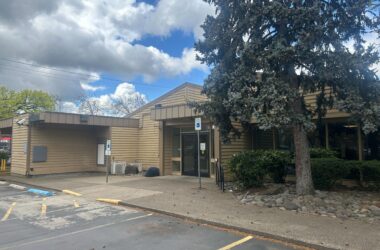
This is going to be one of those columns containing both good news and bad news. And if you are anything like me, you want to get the bad news out of the way first.
Indeed, the bad news that I heard while recently attending a summit hosted by the Oregon Association of Realtors on the weighty subject of fair housing is that, yes, housing discrimination still exists in our communities, our state, and our nation as a whole.
The good news? More than 250 local agents and mortgage brokers participated in the online conference and were treated to an incredibly robust training and educational event that featured a nationally renowned author and expert on housing segregation, representatives from key state watchdog agencies, and a celebrated economist from the National Association of Realtors.
In short, this was not a dry seminar about the dos and don’ts of fair housing practices, but instead an immersive conversation about the systemic issues that plague our society and the solutions needed to end housing discrimination.
The first presenter was Richard Rothstein, a Distinguished Fellow of the Economic Policy Institute, and a Senior Fellow (emeritus) at the Thurgood Marshall Institute of the NAACP Legal Defense Fund. He is the author of The Color of Law: A Forgotten History of How Our Government Segregated America.
Rothstein laid out a compelling case for how housing discrimination has largely escaped legal and political remedies over the years. While space constraints limit my ability to thoroughly present his arguments, he made one important topline point about how such segregation continues to thrive. Simply put, the civil rights movement helped change laws by government entities that previously allowed for legal segregation of voting, employment, and other key aspects of life.
However, because nothing was “on the books” about discrimination in housing, that practice remained unchanged. In other words, because nothing was written down disallowing a government entity to discriminate when it came to housing, landlords, realtors, and much of the public just simply continued the practice.
“Wealth creation in America is tied directly to home ownership,” Rothstein said. “Without access to an even playing field of wealth creation, Black America continues to suffer. Today, Black income is 60% less than white income and worse, Black wealth totals only 5% of white wealth, and this all goes back to state-sponsored segregation in housing practices.”
Rothstein believes a massive correction in real estate is needed to level the playing field. He believes in a form of real estate affirmative action where the government creates many new opportunities for Black Americans and other people of color to get into home ownership.
The next presenter was Shyle Ruder, Education and Outreach Director for the Fair Housing Council of Oregon (FHCO).
The FHCO is a statewide civil rights organization that proactively promotes housing justice, equity, and inclusion, and advocates on behalf of buyers and renters.
Ruder brought much of Rothstein’s points into the present day and discussed how housing discrimination and segregation still exist. And while that is of course the bad news, Ruder also illustrated how much has been done to combat this problem.
The federal Fair Housing Act created a litany of “protected classes” of people against whom it is illegal to discriminate. Oregon has gone even further to provide such protections.
“In many ways, almost everyone is in a protected class under the law, and as such, the Fair Housing Act has real teeth,” Ruder said.
In fact, Ruder explained that such laws as the Fair Housing Act and organizations like FHCO have created legal apparatus to allow everyone to live wherever they want.
Now of course, problems still exist and Ruder’s organization spends much of its collective time in advocacy and awareness. “Unfortunately, only about one in 10 acts of discrimination gets reported,” Ruder said. “One of our main goals is to make sure that all home buyers and renters clearly know their rights.”
Toward the end of the seminar, listeners heard from Dr. Lawrence Yun, Chief Economist with the National Association of Realtors. Yun laid out in stark terms how decades of discrimination have impacted the creation of wealth among minorities.
“In Oregon and in much of the rest of the nation, minorities are renters by necessity, not by choice,” he said. “And here is the problem: in 2021 a renter had about $8,000 in accumulated wealth, whereas a homeowner had $297,000 in accumulated wealth.”
Yun further explained that the national average for white home ownership is 75%, whereas for African Americans it’s 43%, for Hispanic Americans it’s nearly 50%, and for Asian Americans it’s 62%.
Yun finished his presentation by illustrating what the National Association of Realtors is doing to try and correct this massive problem by way of education and training for its agents, as well as for lenders and mortgage brokers. “So much of what we do at the national level is to teach our members how to be stewards of fair housing practices in every transaction they conduct.”
On cue, the seminar concluded with several agents and mortgage lenders discussing best practices they’ve learned to help reverse the tide of segregation in housing. Key among all the advice and counsel were the following:
• Be rigidly consistent: what you do for client A, do for client B
• Remove any and all coded language or characteristics in your dealings. If a potential seller asks, “tell me about the buyer,” don’t talk about who they are, but rather share what they are looking for in a home
While seemingly small steps, such changes in language and behavior over time can have huge impacts in ending housing discrimination.
As the conference wrapped up, I was struck by the hundreds of comments in the chat section. There was a fascinating mix of shared experiences and many ideas on how to push housing segregation into the past.
While there is much work to do, and this conference was designed to highlight the good and the bad when it comes to housing equity and fairness, I left hopeful that the combination of federal and state laws, national and state advocacy organizations, and continuing education for local real estate agents will turn the tide for good in the future.
Email: [email protected]







